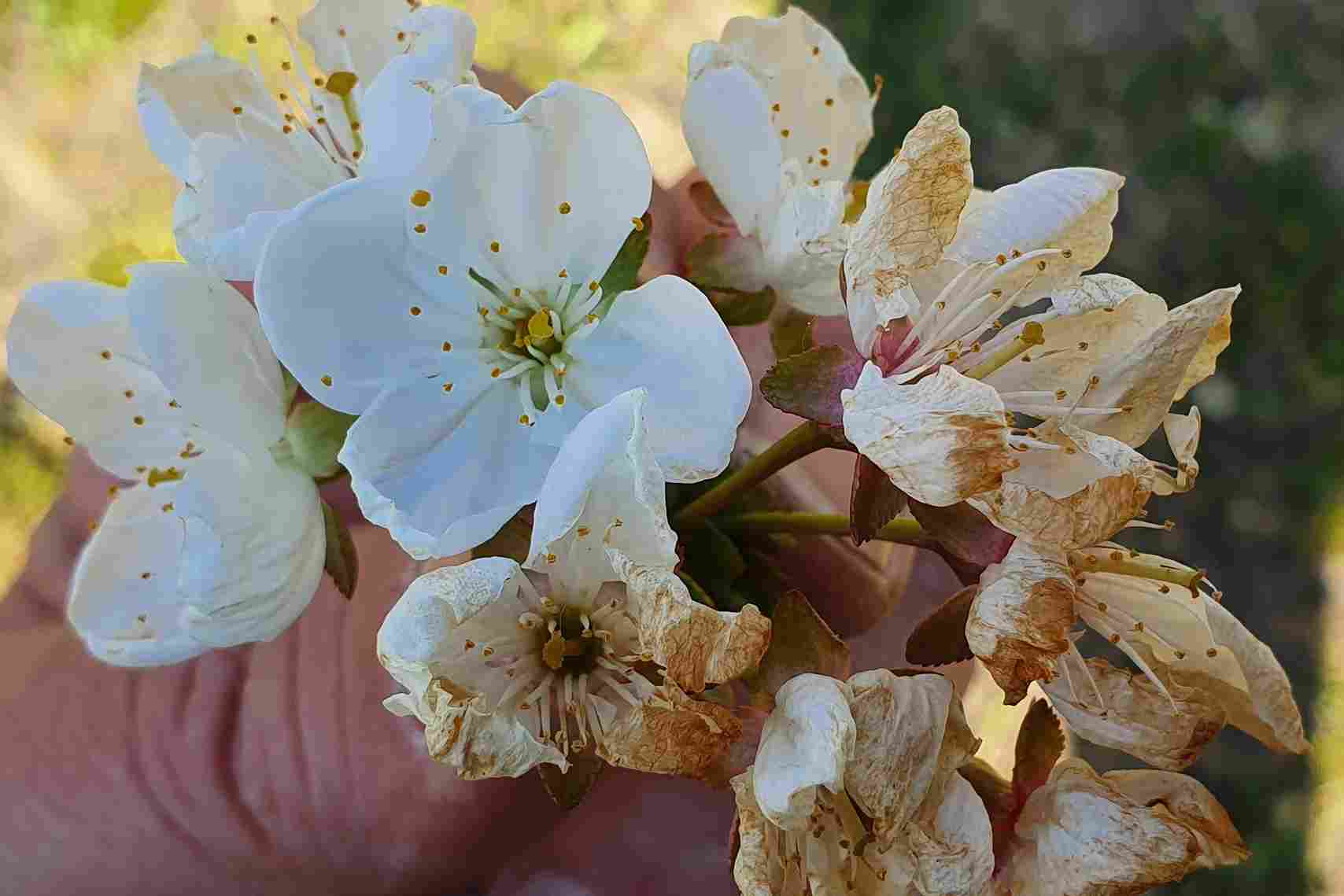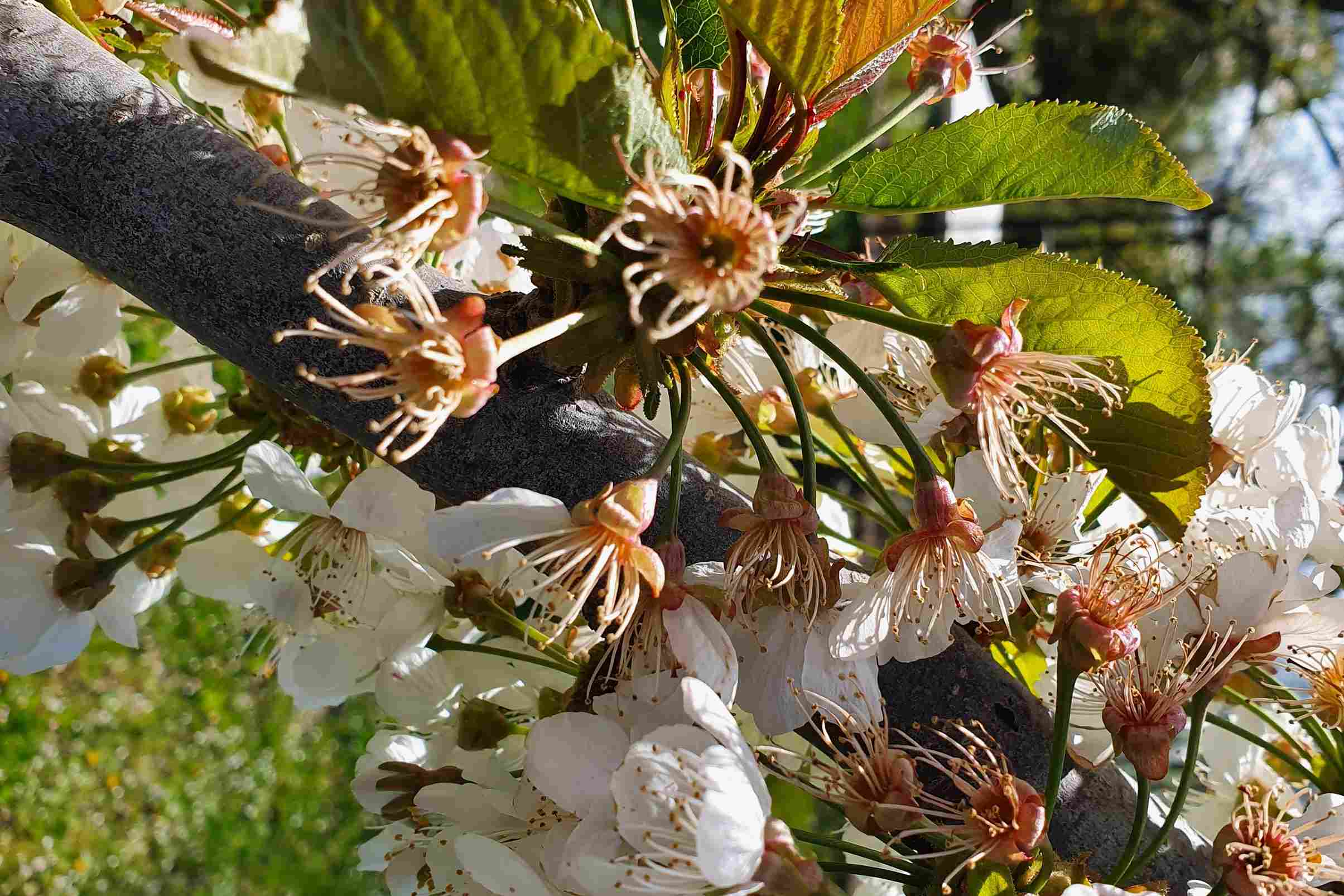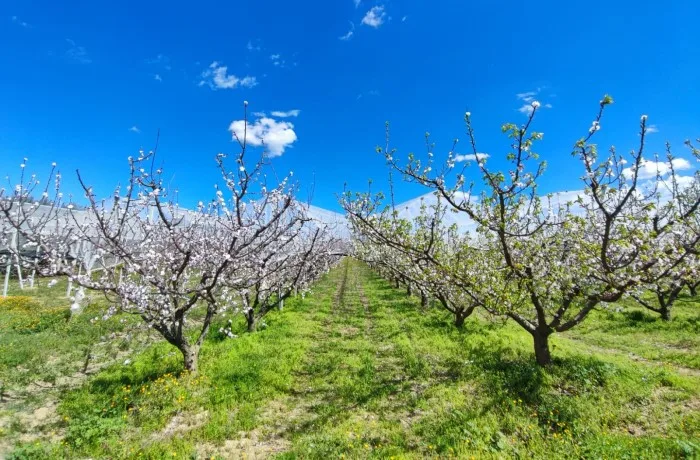Plant growth is influenced by abiotic stresses. During vital processes, genes exhibit differential expression patterns with complex regulatory relationships that coordinate plant growth, development, and responses to abiotic stress.
Among abiotic stresses, low temperatures during flowering and the early stages of sweet cherry development are particularly dangerous. Late frosts can irreversibly compromise production, reducing fruit yield and quality. For this reason, research is focused on understanding the mechanisms of cold resistance in plants and identifying strategies to improve resilience.
A recent study analyzed the PavHIPP gene family, belonging to the HIPP (Heavy metal-associated isoprenylated plant proteins) protein family, which could enhance plant tolerance to low temperatures.
The role of HIPP proteins

HIPP proteins are already known for their role in regulating responses to abiotic stresses such as cold, drought, and salinity. The study identified 28 PavHIPP genes in sweet cherry, distributed across eight chromosomes. Expression analysis of these genes showed that some family members respond to cold, suggesting their involvement in regulating low-temperature tolerance.
Among these genes, PavHIPP16 proved to be particularly interesting. Its expression significantly increases in response to cold, and when overexpressed in Arabidopsis thaliana, it improved the plant’s resistance to frost. Transgenic plants showed differences in osmoregulatory substance content, malondialdehyde levels, relative conductivity variations, peroxidase, and superoxide dismutase activities.
PavHIPP16 and physiological responses

Additionally, these plants accumulated more proline, an amino acid that helps cells maintain osmotic balance and protect against low-temperature damage. These results highlight the crucial role of the PavHIPP16 gene in regulating plant physiological responses to low temperatures.
Beyond improving low-temperature tolerance, PavHIPP16 appears to have a positive effect on root growth and germination speed. Arabidopsis thaliana plants overexpressing this gene developed longer roots and greater biomass than control plants, suggesting a role in regulating growth and development.
Furthermore, transgenic plants flowered earlier than control plants, likely due to the activation of genes (such as FT, CO, and SOC1) involved in regulating the flowering cycle. This suggests that PavHIPP16 may influence not only cold resistance but also plant development in response to environmental conditions.
Future perspectives
The identification and characterization of PavHIPP genes could pave the way for genetic improvement aimed at developing sweet cherry varieties more tolerant to cold stress.
Additionally, the ability of these genes to enhance plant growth and biomass could have broader implications for cherry cultivation in environments subject to adverse climatic conditions. In a context of climate change, with unpredictable winters and springs characterized by sudden temperature fluctuations, more tolerant varieties could ensure greater stability in production and quality.
It will be essential to further explore the role of PavHIPP genes in plant responses to abiotic stress, assessing their interaction with other genes and metabolic pathways involved in cold tolerance. Only through detailed analysis and an in-depth understanding of these mechanisms will it be possible to fully exploit the potential of these genes in genetic improvement to enhance crop productivity.
Source: Yu, R., Hou, Q., Deng, H., Xiao, L., Liu, K., Wu, Y., & Qiao, G. (2024). Molecular identification and expression patterns of sweet cherry HIPPs and functional analysis of PavHIPP16 in cold stress. Planta, 260(6), 1-19. https://doi.org/10.1007/s00425-024-04567-z
Image source: SL Fruit Service
Andrea Giovannini
University of Bologna
Cherry Times - Tutti i diritti riservati












